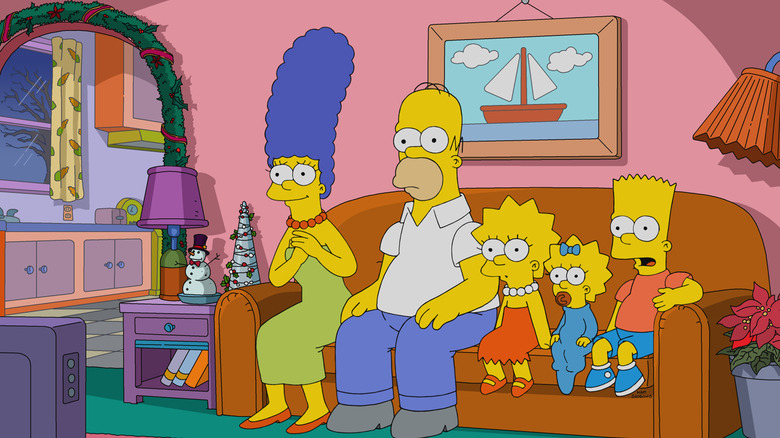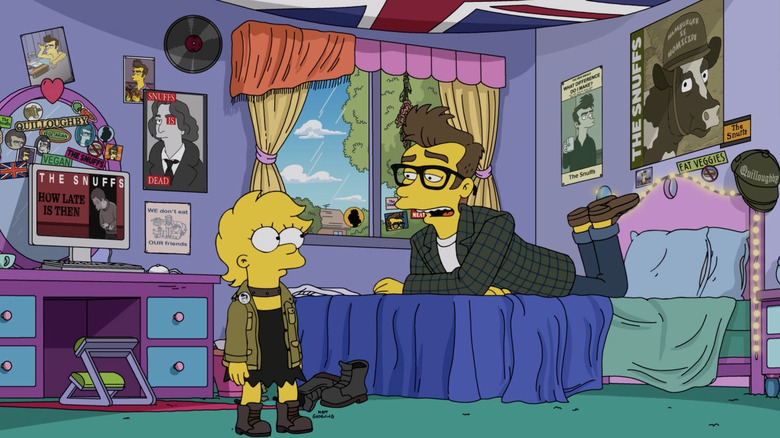Going HD Gave The Simpsons Writers A Lot More Work To Do
When a show like "The Simpsons" has been around for as long as it has, it becomes a fascinating time capsule in addition to fulfilling its weekly sitcom obligations. For over three decades, the animated family has remained the same age, while the world around them has evolved to reflect the times. If the Simpsons themselves aren't going to change, it makes sense for everything else to evolve – even if the concept of a lower-middle class family keeping up with a house that size in the modern economy has since become a fantasy since the '90s.
One of the biggest changes to the show, however, came in 2009 when "The Simpsons" upgraded to high definition presentation in the middle of their 20th season with the episode "Take My Life, Please." It seems like a natural progression, as most other animated programs would eventually make the same leap, but during an interview with the Archive of American Television, executive producer Al Jean spoke about how the image quality conversion saddled the series' team of animators with even work to accomplish. "Where we used to get by with just, say, having a line here or a drawing there, you now have to, like, write titles for every book in a bookstore, or, you know, every – you can't just get by with, like, an animator squiggle, you have to actually write out what's in the backgrounds of this wide screen," says Jean.
The upgrade has its benefits as well as its disadvantages
High definition presentation was going to come for "The Simpsons," whether it was ready for it or not. The series looks crisper than it has even been, but that can also be part of the problem.
"The Simpsons" is home to some of the greatest background gags in animation. You don't have to look any further than the annual "Treehouse of Horror" Halloween specials, in which they particularly go all-out. It's always a lot of fun to notice them on subsequent viewings, but they start to lose some of their charm when they noticeably shift to the forefront.
The header image above, for example, shows two characters in one location speaking to one another. Rather than positioning them as the focus, by making everything in the room available to read, the "Simpsons" team ensures they'll only carry a fraction of the viewer's attention at a time. It looks too busy for my tastes. That's why I enjoy the series' standard definition days, where the animation had more personality, and the background gags stuck out a lot more.
Seasons 1-32 of "The Simpsons" are currently streaming on Disney+.

